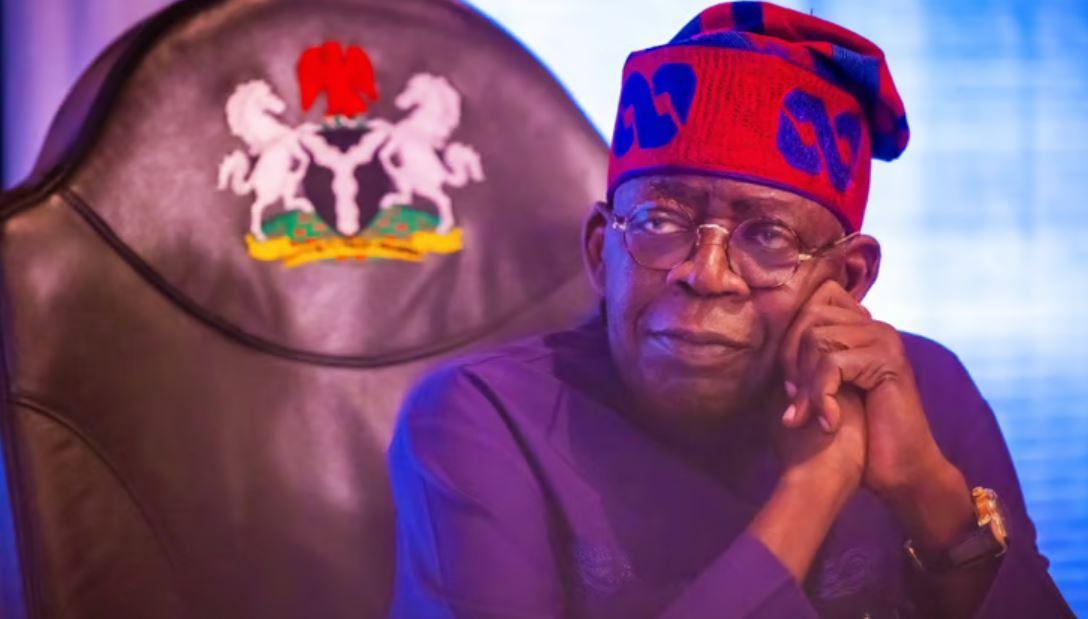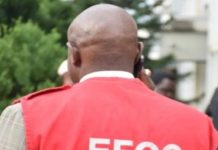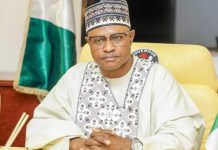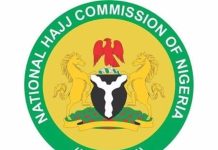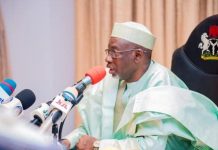Abba Hamisu Sani
Africa-Press – Nigeria. From all indications, it will not be smooth for Tinubu to penetrate the northern region in 2027—the same region that provided more than sixty percent of the votes that made him President of Nigeria in 2023.
But recent signs seem to be against him as another election season approaches. Segments of northern leaders and public opinion appear increasingly dissatisfied with President Tinubu’s governance record over the past two years, raising questions about his support base in the North.
A recent two-day Interactive Session on Government–Citizens Engagement, organized by the Sir Ahmadu Bello Memorial Foundation (SABMF) in Kaduna, appeared to have been convened in the spirit of civic dialogue. However, it revealed deeper regional grievances, political fragmentation, and contested narratives.
The event, which was held at Arewa House, Kaduna, from July 29–30, 2025, elicited a wide range of responses from northern political elites and stakeholders. It also served as a barometer for assessing perceptions of the Tinubu administration in the North ahead of the 2027 general elections.
Evaluating Tinubu’s Performance
The main objective of the gathering was to evaluate the performance of President Bola Tinubu, following commitments he made during a similar engagement on October 17, 2022, alongside other presidential candidates. The proceedings suggested underlying political discontent among northerners.
A segment of northern leadership and public opinion appears increasingly dissatisfied with Tinubu’s governance record over the past two years.
The interactive session also provided an avenue for some influential northern voices to raise questions about political equity and support as 2027 approaches.
Some aggrieved political stakeholders, particularly a vocal segment of northern elites, alleged growing marginalization under President Tinubu’s administration.
With 2027 looming, the discourse in Kaduna underscored a potentially significant political rift. The northern region, which overwhelmingly backed Tinubu during the 2023 presidential election, now finds itself divided over his performance and his posture toward the region.
ACF Expresses North’s Disappointment with Tinubu
Bashir Dalhatu, Chairman of the Board of Trustees (BoT) of the Arewa Consultative Forum (ACF), the leading socio-political group in the North, expressed the region’s disappointment with President Tinubu.
“Two years into the four-year tenure of President Tinubu, the feeling among the people of the North is, to put it mildly, completely mixed,” Dalhatu declared.
The ACF BoT chairman accused the administration of sidelining the North in key areas such as federal appointments, infrastructure development, and budget allocations.
“To our surprise, those who did not support him, did not vote for him, and hardly wished him well have emerged from nowhere and are trying to push a wedge between him and the North.
Whether or not they are succeeding, we do not know. But we cannot pretend not to observe that President Tinubu’s budget priorities, infrastructural projects, appointments, and other executive actions have, over the last two years, largely sidelined Northern Nigeria,” the ACF leader said.
Bashir Dalhatu reiterated the region’s overwhelming electoral support for Tinubu in 2023, claiming that “5.6 million out of the total 8.3 million votes garnered by Tinubu in the election were from the North.”
The Lingering Security Challenges
Beyond political appointments, Dalhatu lamented the persistent security challenges plaguing the region.
“Over the last decade, widespread violence—characterized by massacres, bombings, cattle rustling, kidnapping, and other manifestations of conflict and insecurity—has swept across Northern Nigeria, crippling almost all productive economic activities and social progress,” he added.
Dalhatu faulted the President for allegedly failing to implement bold measures to combat insecurity and youth unemployment, two of the region’s most pressing challenges.
“The federal government’s budget priorities, infrastructural projects, investments, and even social services have been openly skewed against Northern Nigeria.
This discriminatory practice is not done secretly; it is splashed directly in our faces—openly, frankly, and without the need for apology,” he said.
It Is Hypocrisy to Shift Responsibility to a Government That Inherited Decades of Rot
The governor of Kaduna State, Senator Uba Sani, asked Northern leaders to stop blaming Tinubu for the region’s longstanding problems.
He accused some elites of political opportunism and historical amnesia.
“For over 20 years, insecurity grew, education declined, and poverty deepened. Where were the loud voices now blaming Tinubu when these things took root?
It is hypocrisy to now shift responsibility to a government that inherited decades of rot,” Sani argued.
He called for introspection, collaboration, and an end to the “blame game.”
“Yes, President Tinubu made promises. But let us be honest with ourselves—he has kept faith with the North in many critical areas: security, agriculture, education, and economic inclusion. The real question is, have we kept faith with our people as Northern leaders?” he asked.
Uba Sani emphasized that the federal government cannot single-handedly solve the North’s problems without strategic collaboration from regional governments and traditional institutions.
Kabir Muhammad, a public affairs analyst, said that Northern Nigeria is in pain, poverty, and peril.
Poverty and Frustration Intensified
“Under the current administration, poverty has intensified. Public frustration could translate into political consequences in 2027,” he said.
Kabir added that Northerners did not bargain for this crippling hardship when they supported Tinubu in 2023, and he emphasized that they are not happy. “The North is watching. Failure to recalibrate policy direction could lead to political backlash for him in 2027.”
The analyst stated that the interactive session in Kaduna was convened in the spirit of civic dialogue, but it revealed deeper currents of regional grievance, political fragmentation, and contested narratives.
For President Tinubu, who faces re-election in 2027, the message from parts of the North is unmistakable: the region is demanding more before supporting him in 2027.
The interactive session was meant to be a platform for reflection and dialogue. In reality, it became a test.
For More News And Analysis About Nigeria Follow Africa-Press


